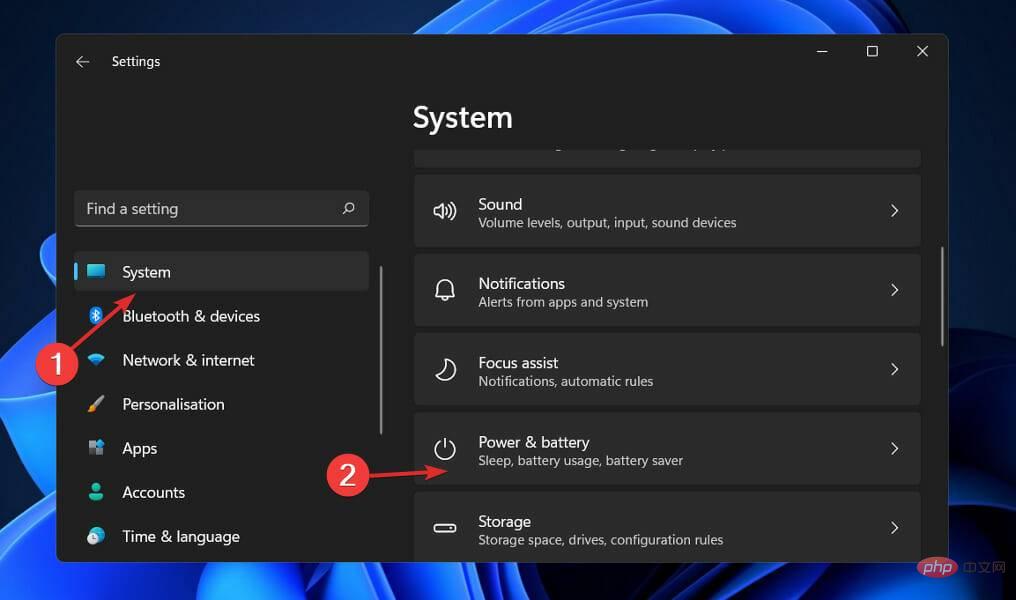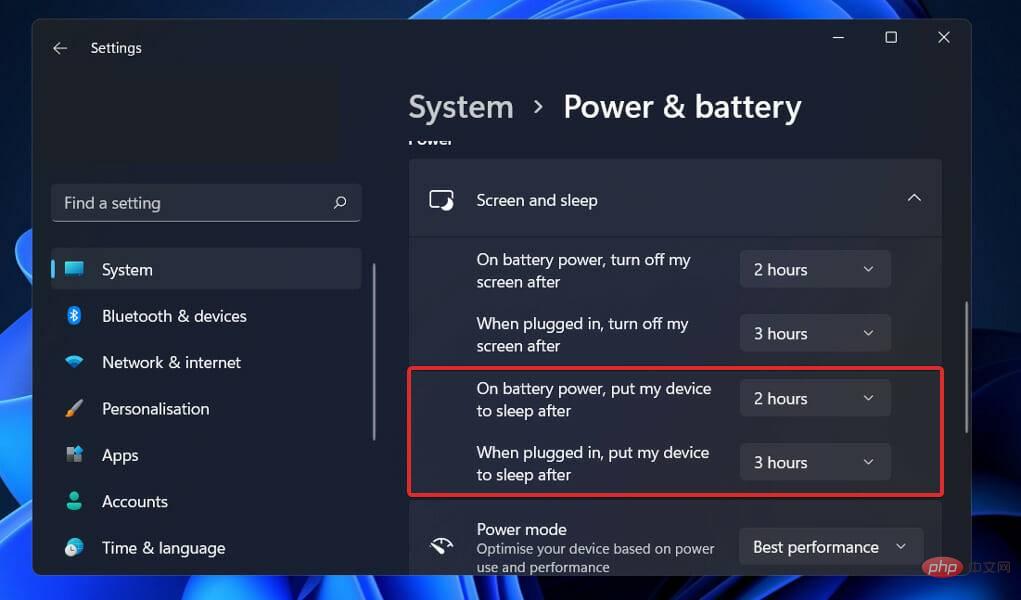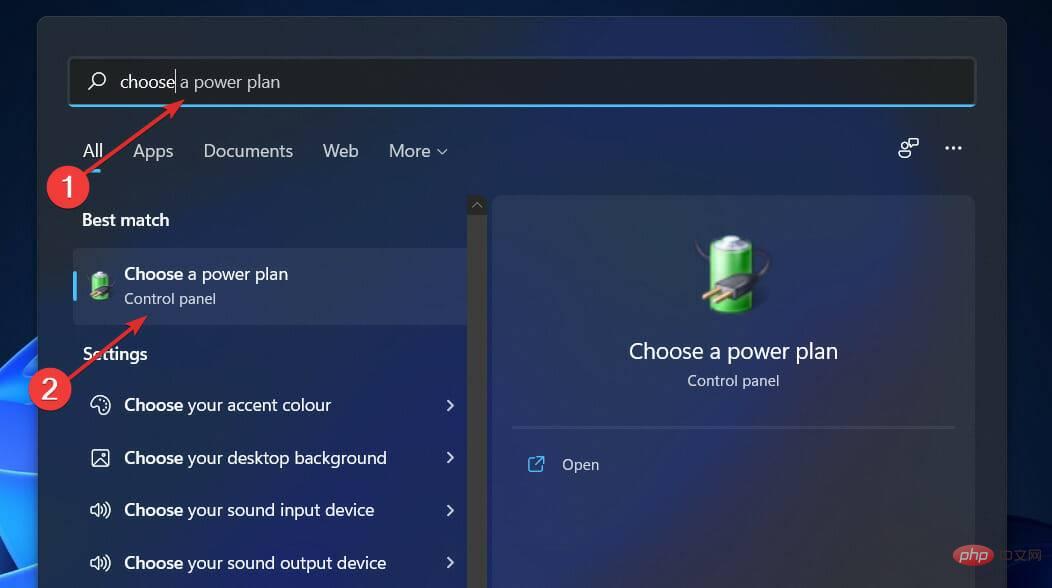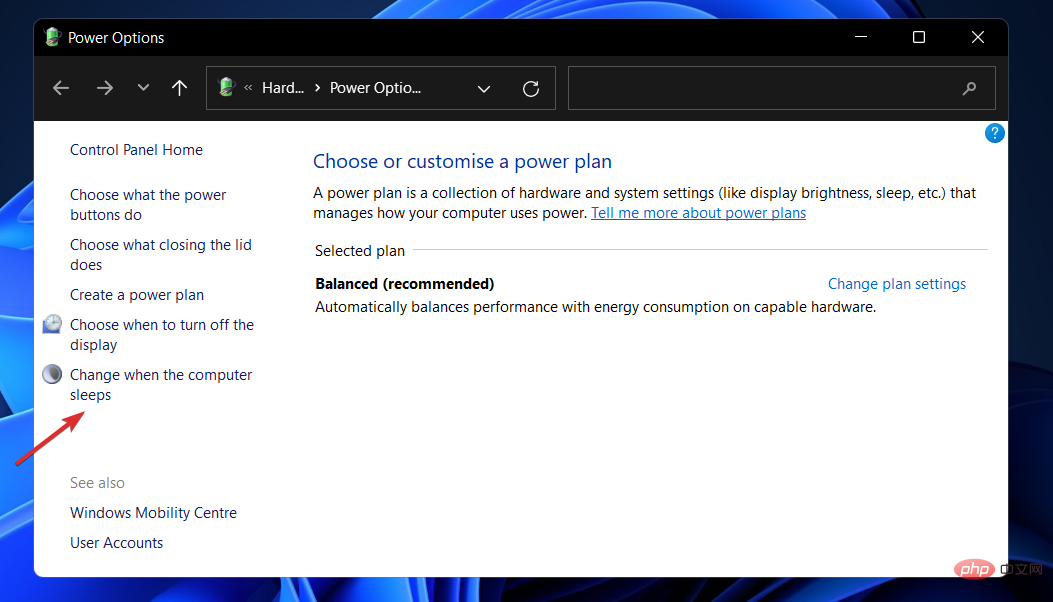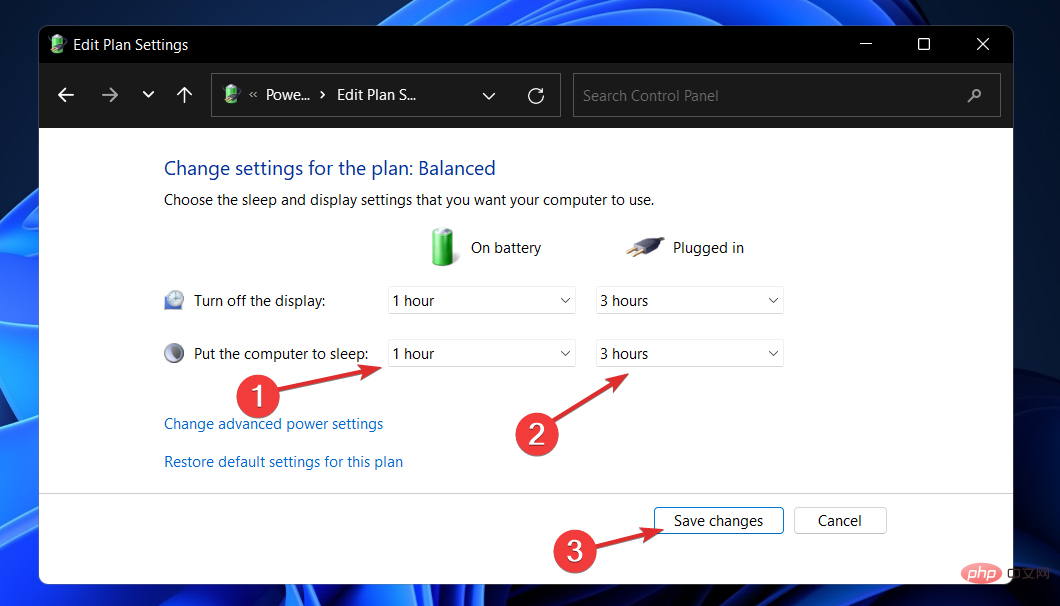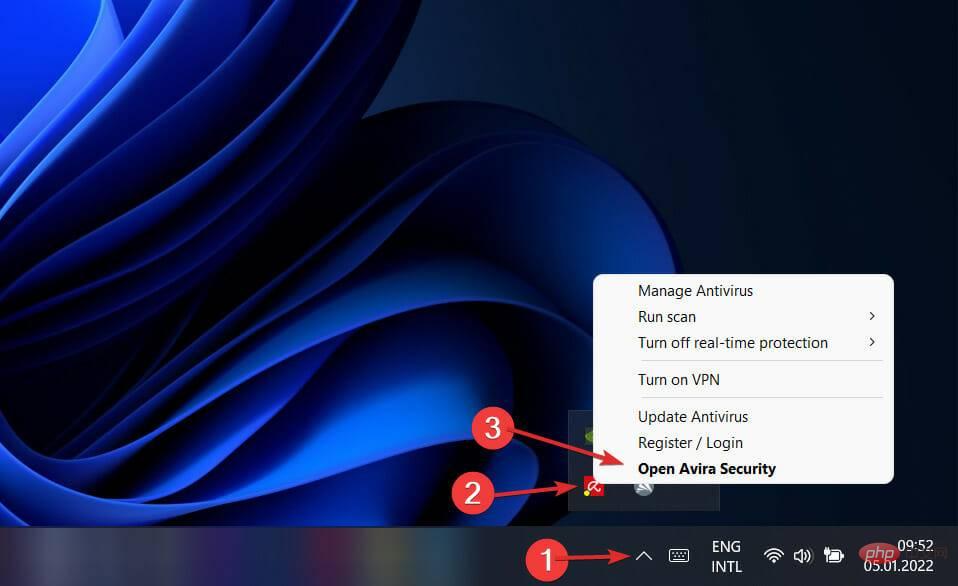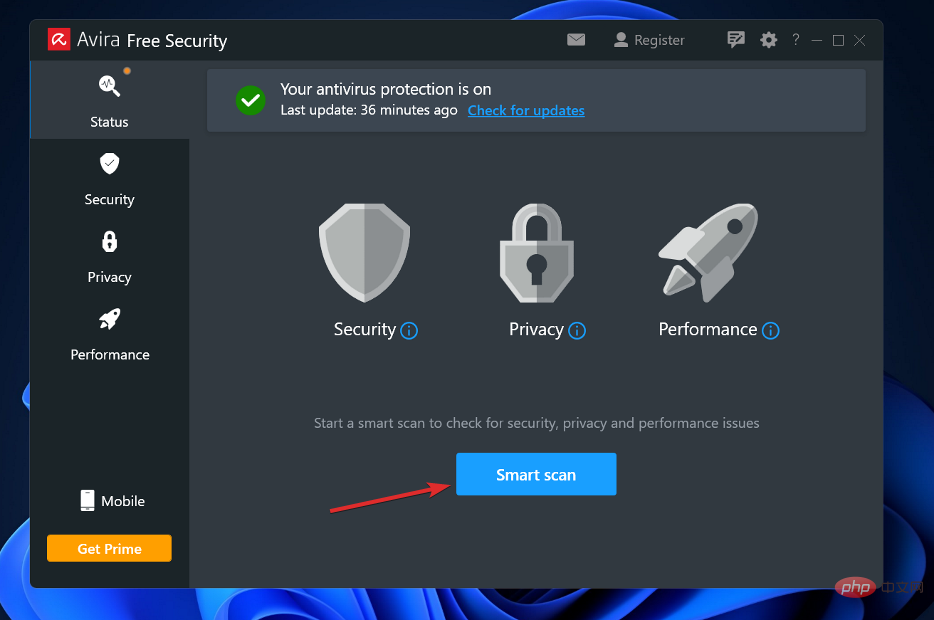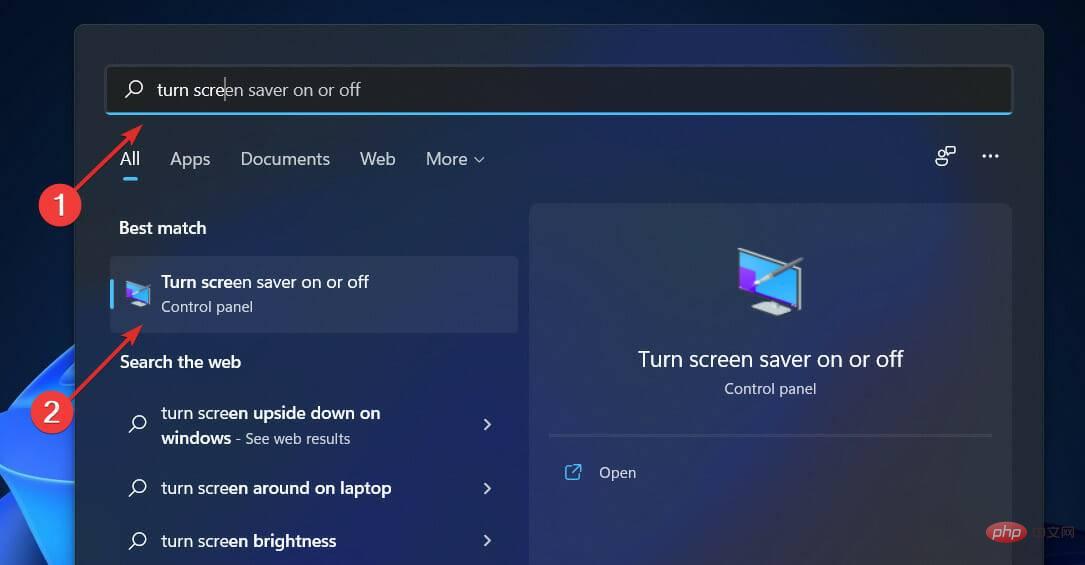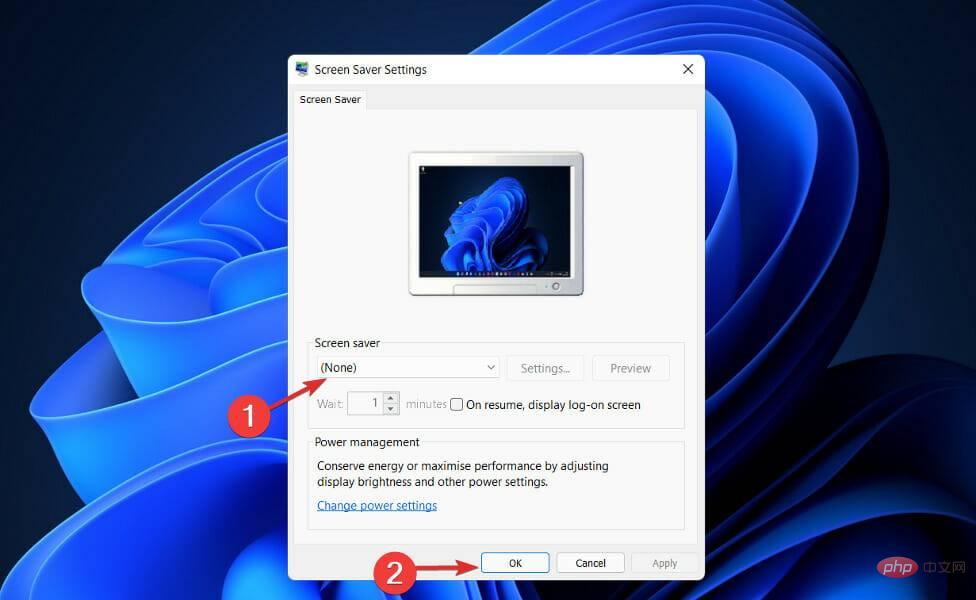Windows 11 won't go to sleep? Try these fixes
Sleep mode is often considered one of the most beneficial aspects of the Windows operating system, especially when it comes to reducing power consumption.
This mode puts your device into a low-power state, turning off the display and allowing you to pick up where you left off. Therefore, Windows uses sleep mode instead of shutting down the system completely to extend the battery life of your device.
When you are away from your computer for a short period of time, you should use this feature to prevent your power supply from overheating due to prolonged use.
However, some users reported that their PC would not enter sleep mode and would shut down completely or do nothing. As soon as we saw the difference between sleep and hibernation mode, we put together a list of solutions for this problem.
What is the difference between sleep mode and hibernation mode?
Most people often use sleep mode and hibernation mode interchangeably, but they are not the same thing in reality.
The former is a power-saving mode that allows activity to restart once the device is fully charged again, while the latter mode, like sleep mode, is designed to save power but has some limitations in terms of what happens to data. different.

In sleep mode, the documents and files you are working on are stored in RAM, requiring very little power during the process.
Hibernation mode effectively accomplishes the same thing, except it stores information on your hard drive, allowing you to shut down your computer and save all the energy it would consume.
When you turn your computer back on, the hard drive allows you to pick up exactly where you left off. Hibernate is primarily used on laptops and works best when you don't plan to use the computer for long periods of time.
Once again, laptops work best in sleep mode due to their battery life, which allows them to last for short naps and overnight sleep. It should be mentioned that if your computer is left unattended for an extended period of time, it will shut down.
What should I do if Windows 11 won’t enter sleep mode?
1. Manually turn on sleep mode
- Press the Windows I key to open the Settings application, and then navigate Go to System in the left panel, then navigate to Power & Battery from the right.

- Now scroll to the Screen and Sleep section and manually set the inactivity interval at which you want your PC to enter sleep mode.

2. Change the computer sleep time
- Press the Windows S key to open the search bar, and then type Select a power plan and click on the most relevant result.

- Now click on Select Options when the computer hibernates from the left panel.

- Finally, select when you want your computer to enter sleep mode and click Save.

3. Perform a virus scan
- Click the carrot arrow in the taskbar, find your installed anti-virus software in the upper right corner, and then right-click Click it and select the option to open the application interface .

- Now click on the button to perform Smart Scan or anything similar to virus scan.

The presence of viruses or malware on your computer may prevent your device from entering sleep mode.
4. Turn off the screen saver mode
- Press the Windows S key to open the search bar, then type to turn on or off the screen saver Program, then click on the most relevant result.

- Now select None under Screen Saver and click OK.

5.Removing the battery
This step is for those using a laptop or desktop computer. If your PC frequently refuses to sleep, even if all settings are correct, the most likely culprit is the battery itself.
It is recommended to remove the CMOS battery for 15 minutes and then reinsert it to see if the problem is resolved. Alternatively, the CMOS battery should be replaced.
If your device's battery is not replaceable, you can use a third-party app to track its remaining charge before deciding to replace it.
How much power does the computer use in sleep mode?
Almost everyone has access to a computer, whether for personal or professional reasons. It's no secret that computers consume a lot of power, especially when performing certain tasks such as playing video games or using Photoshop.
Therefore, it is recommended that we minimize power consumption when not using them. It is for this reason that we have sleep patterns. But how much power does your computer consume when it's in sleep mode? 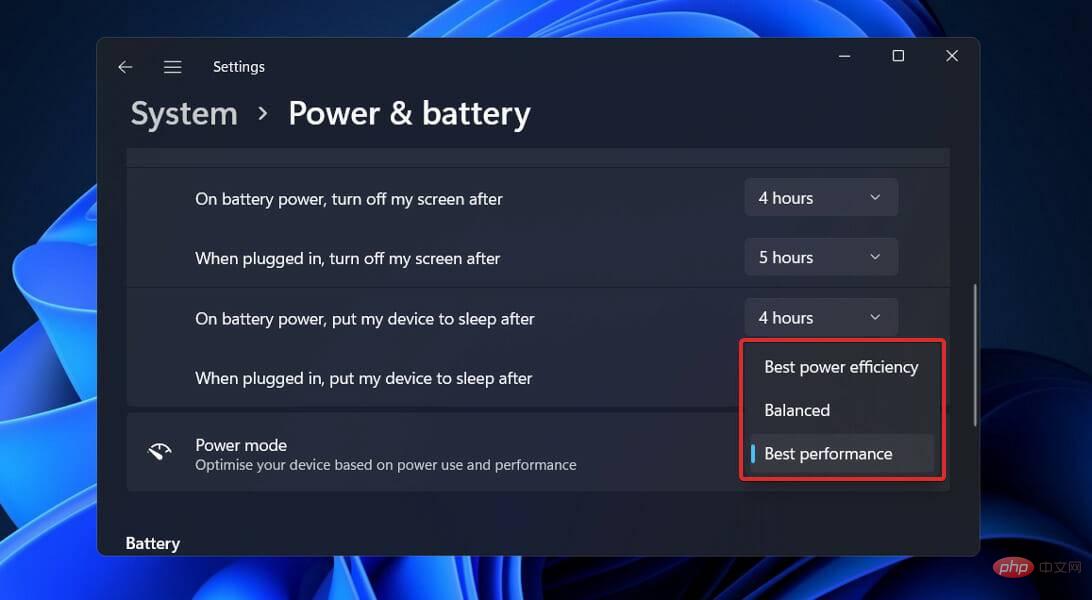
Most computers typically require 3 to 10 watts of power in sleep mode. Desktop computers consume 60 to 300 watts of power when running in normal mode, about 30 times more than when running in sleep mode.
Compared to computers, laptops use about 2 watts of power in sleep mode. When a computer is in sleep mode, all of its devices (except RAM) are turned off.
Another thing to consider is the number of applications running on your computer at any given time. If your computer isn't running many applications, you can put it into sleep mode, which will prevent monitors, disks, and other major power consumers from using any power.
The above is the detailed content of Windows 11 won't go to sleep? Try these fixes. For more information, please follow other related articles on the PHP Chinese website!

Hot AI Tools

Undresser.AI Undress
AI-powered app for creating realistic nude photos

AI Clothes Remover
Online AI tool for removing clothes from photos.

Undress AI Tool
Undress images for free

Clothoff.io
AI clothes remover

Video Face Swap
Swap faces in any video effortlessly with our completely free AI face swap tool!

Hot Article

Hot Tools

Notepad++7.3.1
Easy-to-use and free code editor

SublimeText3 Chinese version
Chinese version, very easy to use

Zend Studio 13.0.1
Powerful PHP integrated development environment

Dreamweaver CS6
Visual web development tools

SublimeText3 Mac version
God-level code editing software (SublimeText3)

Hot Topics
 1666
1666
 14
14
 1425
1425
 52
52
 1328
1328
 25
25
 1273
1273
 29
29
 1253
1253
 24
24
 How to speed up the loading speed of PS?
Apr 06, 2025 pm 06:27 PM
How to speed up the loading speed of PS?
Apr 06, 2025 pm 06:27 PM
Solving the problem of slow Photoshop startup requires a multi-pronged approach, including: upgrading hardware (memory, solid-state drive, CPU); uninstalling outdated or incompatible plug-ins; cleaning up system garbage and excessive background programs regularly; closing irrelevant programs with caution; avoiding opening a large number of files during startup.
 What is the reason why PS keeps showing loading?
Apr 06, 2025 pm 06:39 PM
What is the reason why PS keeps showing loading?
Apr 06, 2025 pm 06:39 PM
PS "Loading" problems are caused by resource access or processing problems: hard disk reading speed is slow or bad: Use CrystalDiskInfo to check the hard disk health and replace the problematic hard disk. Insufficient memory: Upgrade memory to meet PS's needs for high-resolution images and complex layer processing. Graphics card drivers are outdated or corrupted: Update the drivers to optimize communication between the PS and the graphics card. File paths are too long or file names have special characters: use short paths and avoid special characters. PS's own problem: Reinstall or repair the PS installer.
 How to solve the problem of loading when PS is always showing that it is loading?
Apr 06, 2025 pm 06:30 PM
How to solve the problem of loading when PS is always showing that it is loading?
Apr 06, 2025 pm 06:30 PM
PS card is "Loading"? Solutions include: checking the computer configuration (memory, hard disk, processor), cleaning hard disk fragmentation, updating the graphics card driver, adjusting PS settings, reinstalling PS, and developing good programming habits.
 Does mysql need the internet
Apr 08, 2025 pm 02:18 PM
Does mysql need the internet
Apr 08, 2025 pm 02:18 PM
MySQL can run without network connections for basic data storage and management. However, network connection is required for interaction with other systems, remote access, or using advanced features such as replication and clustering. Additionally, security measures (such as firewalls), performance optimization (choose the right network connection), and data backup are critical to connecting to the Internet.
 Is slow PS loading related to computer configuration?
Apr 06, 2025 pm 06:24 PM
Is slow PS loading related to computer configuration?
Apr 06, 2025 pm 06:24 PM
The reason for slow PS loading is the combined impact of hardware (CPU, memory, hard disk, graphics card) and software (system, background program). Solutions include: upgrading hardware (especially replacing solid-state drives), optimizing software (cleaning up system garbage, updating drivers, checking PS settings), and processing PS files. Regular computer maintenance can also help improve PS running speed.
 Can mysql run on Windows
Apr 08, 2025 pm 01:54 PM
Can mysql run on Windows
Apr 08, 2025 pm 01:54 PM
Running MySQL on Windows is feasible, but challenges such as port conflicts, permission issues, and environment variable settings need to be considered. Installation issues can be solved by customizing configuration files, adjusting user permissions, and setting environment variables correctly. Additionally, the appropriate storage engine should be selected, tweaked configuration files, and SSDs should be used to optimize performance.
 How to solve the problem of loading when the PS opens the file?
Apr 06, 2025 pm 06:33 PM
How to solve the problem of loading when the PS opens the file?
Apr 06, 2025 pm 06:33 PM
"Loading" stuttering occurs when opening a file on PS. The reasons may include: too large or corrupted file, insufficient memory, slow hard disk speed, graphics card driver problems, PS version or plug-in conflicts. The solutions are: check file size and integrity, increase memory, upgrade hard disk, update graphics card driver, uninstall or disable suspicious plug-ins, and reinstall PS. This problem can be effectively solved by gradually checking and making good use of PS performance settings and developing good file management habits.
 Can mysql return json
Apr 08, 2025 pm 03:09 PM
Can mysql return json
Apr 08, 2025 pm 03:09 PM
MySQL can return JSON data. The JSON_EXTRACT function extracts field values. For complex queries, you can consider using the WHERE clause to filter JSON data, but pay attention to its performance impact. MySQL's support for JSON is constantly increasing, and it is recommended to pay attention to the latest version and features.



